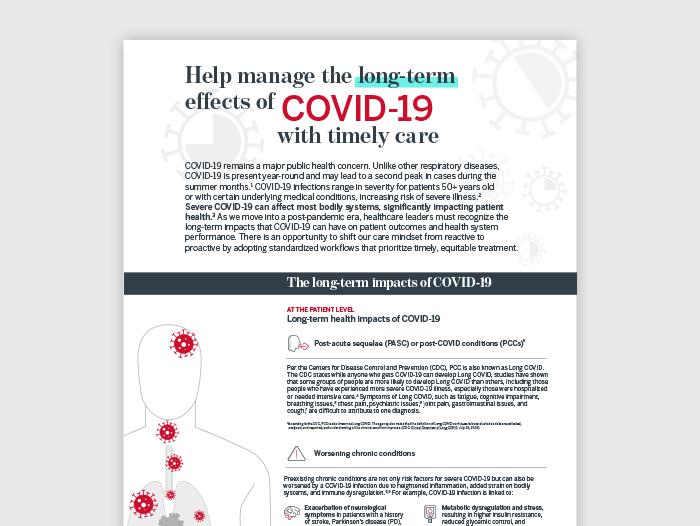Auto logout in seconds.
Continue LogoutAs COVID-19 cases and hospitalizations continue to rise across the United States, some organizations are choosing to reinstate mask mandates. To keep yourself safe from illness, health experts offer recommendations on who should consider masking again and when and where you should wear a mask.
Some places are bringing back mask mandates
Since July, COVID-19 hospitalizations have been increasing steadily nationwide, and CDC forecasts that there will be an acceleration in hospitalizations over the next month. Currently, many U.S. states are seeing substantial increases (20% or more) in hospitalizations.
Although CDC has not announced new mask mandates, some organizations have chosen to reinstate their own masking requirements. For example, Hollywood studio Lionsgate implemented a mask mandate for certain floors of its offices after several employees tested positive for COVID-19.
Meanwhile, Morris Brown College implemented a two-week mask requirement, as well as a ban on large gatherings, after there were "reports of positive cases among students in the Atlanta University Center."
Some hospitals, including certain California-based hospitals owned by Kaiser Permanente and two Upstate Medical University facilities in New York, have also reinstated mask mandates
Should people start masking again?
According to health experts, as COVID-19 cases and hospitalizations continue to rise, people may want to consider wearing a mask again, especially if they are at high risk of severe disease.
"People 65-plus and people who are immunocompromised should strongly consider masking during flu, RSV, COVID season while in indoor public spaces," said Céline Gounder, editor-at-large for public health at KFF Health News. "And for everyone else — it all depends on what their risk tolerance is."
Jon LaPook, CBS News' chief medical correspondent, said he likes to use a "weather report analogy" to explain when the general public should consider masking.
"What's the weather out today? If it's raining, you will probably want to bring an umbrella," LaPook said. "If you are in an area where there is an uptick in airborne respiratory infections like COVID, flu or RSV, you may want to take extra precautions, such as wearing a high-quality mask in indoor public spaces."
"I tend to say, if you're going to go out, make sure you have a mask in your car, a couple masks at home or at work, so you always have something available to put on," said Andrew Pekosz, a professor of molecular microbiology and immunology at the Johns Hopkins University Bloomberg School of Public Health.
When and where you should wear a mask
If you choose to wear a mask again, health experts recommend N95, KN95 or KF94 masks, which can filter out over 90% of virus particles and are more effective than surgical or cloth masks. You should also ensure that the mask fits snugly and covers both your mouth and nose.
A high-quality mask "does wonders in terms of protecting you from getting infected, but you have to wear it the right way," said Pekosz said. "If you don't crimp the metal thing around your nose, if it's loose around you, then you're probably breathing around the mask, not through the mask. And that is not going to protect you."
Depending on your own risk tolerance and personal health situation, health experts recommend masking in relatively confined, crowded indoor spaces, especially if you're going to be there for more than 10 minutes.
"Certainly every time you add another person to the room, particularly people who are within three to five feet of you, that increases your chance of getting infected, exponentially," Pekosz said.
And even if you're the only person masking, a high-quality mask can still meaningfully decrease your risk of infection. "You're going to be pretty well protected" because you're guarding your face from viral particles, said Yvonne Maldonado, a professor of global health and infectious diseases at Stanford Medicine.
Outdoor transmission is less likely, but it may be beneficial to wear a mask in crowded, outdoor situations, such as a sporting event or concert. According to Linsey Marr, an expert in airborne transmission of viruses at Virginia Tech, a good rule of thumb for outdoor masking is to wear one "[w]hen you're in environments where you can reach out and touch someone."
In addition, if you find out that you've recently spent time with someone who tested positive, CDC recommends wearing a high-quality mask for 10 full days when you're around others. You should still wear a mask in public indoor settings even if you test negative since it can take several days for symptoms to develop.
"Masks work, period," Maldonado said. "Whether you choose to use them or not is a different matter. But they definitely work." (Associated Press/Spectrum News, 8/24; Moniuszko, CBS News, 8/25; Reynolds, Newsweek, 8/25; Blum, New York Times, 8/29)
COVID-19 cases and hospitalizations have been rising over the last few weeks. But with a new COVID-19 booster targeting recent variants coming this fall, should you wait for an updated booster or protect yourself now? Fran Kritz investigates for NPR's "Goats and Soda."
Don't miss out on the latest Advisory Board insights
Create your free account to access 1 resource, including the latest research and webinars.
Want access without creating an account?
You have 1 free members-only resource remaining this month.
1 free members-only resources remaining
1 free members-only resources remaining
You've reached your limit of free insights
Become a member to access all of Advisory Board's resources, events, and experts
Never miss out on the latest innovative health care content tailored to you.
Benefits include:
You've reached your limit of free insights
Become a member to access all of Advisory Board's resources, events, and experts
Never miss out on the latest innovative health care content tailored to you.
Benefits include:
This content is available through your Curated Research partnership with Advisory Board. Click on ‘view this resource’ to read the full piece
Email ask@advisory.com to learn more
Click on ‘Become a Member’ to learn about the benefits of a Full-Access partnership with Advisory Board
Never miss out on the latest innovative health care content tailored to you.
Benefits Include:
This is for members only. Learn more.
Click on ‘Become a Member’ to learn about the benefits of a Full-Access partnership with Advisory Board
Never miss out on the latest innovative health care content tailored to you.


